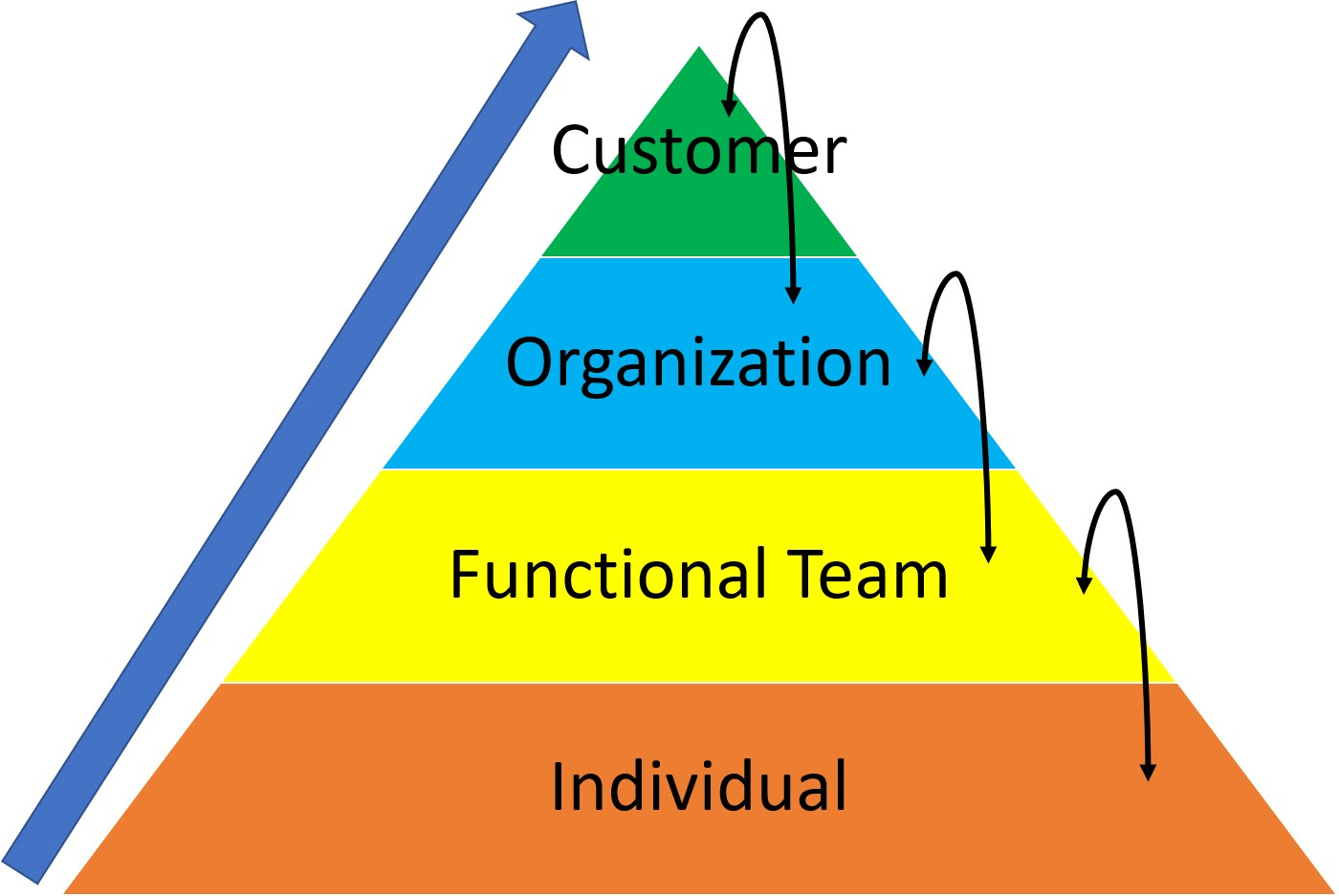a simple guide for the right decision making
The question was, " how to balance the boss and the junior colleagues?".
He seems to find it challenging to manage his boss and junior colleagues as some of his decisions went against him. This situation is common as most middle-level managers go through in a day to day life in the organization.
My view is as follows.
We do not need to balance any stakeholders with our decisions other than how to make the right decision so that the impact would be more significant and we will not feel guilty about the consequence.

When we make a decision and consider the impact of our decision at a higher level in the hierarchy, as shown in pic, it helps us to make the right decision most of the time.
For example,
as a manager, if you want to do a favor for one of your junior colleagues and the decision will not affect other people in the function or the organization, the decision will be right. If the favor to one person will affect the functional team or even the organization, then the decision may not be the right decision.
i know an entrepreneur with high creditability among his customer's circle, not due to the quality or craftsmanship of his product, but because he always decides in favor of the customer than his organization's short-term expenses. For example, when the customer approaches him for doing the rework in the product due to the customer's mistake of mentioning the wrong specification, he never hesitates to do the rework, and he does it at this expense than arguing with the customer on who is right and what needs to be compensated etc. His generic decision-making thought process puts the higher purpose first than his organization in the short term. In the long run, his decision-making process pays him well as he gets repeated orders from the customers.
My key learning is when we make decisions when we put the higher stakeholder as a priority, likely we will make the right decision, even sometimes, in the short term, we face criticism or pain.
Above all hierarchy of consideration in decision making, listen to your inner consciousness before making any decision, which is more powerful to guide you to make the right decisions than anything else.
Have a great week ahead.
 behaviors during the session. I benefited immensely from the programme, and he was instrumental in my decision to venture into coaching and consultancy.
behaviors during the session. I benefited immensely from the programme, and he was instrumental in my decision to venture into coaching and consultancy. )
)



